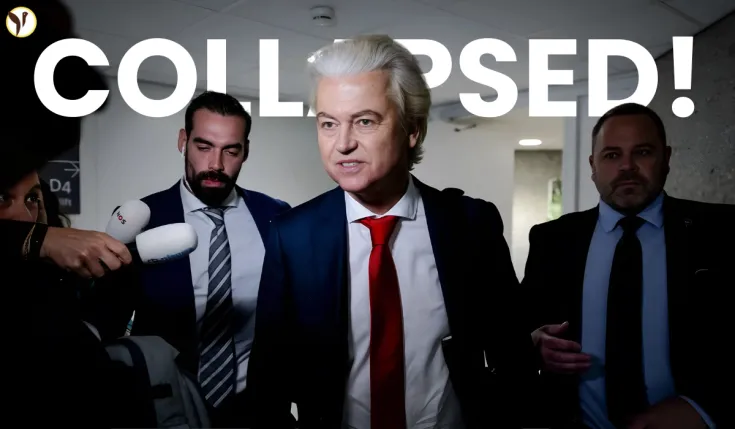The Dutch coalition government has collapsed after the far-right Party for Freedom, led by Geert Wilders, withdrew from the coalition government. The announcement on June 3, 2025, ends a tenuous coalition government rarely able to support one another during lengthy internal divisions. The coalition's collapse was thrust into the public eye because of a host of unacceptable disagreements over proposed asylum policies that began to arise due largely to the troubling approach to immigration and refugee intake.
Relationships began to fracture within the coalition and there was not enough trust to continue providing support to one another. With the formal collapse of the government, the Netherlands enters a precarious situation with potential instability and new elections, as parties cautiously prepare to begin the difficult and lengthy process of forming another coalition.
Wilders and the Coalition Collapse
The coalition that consisted of the People's Party for Freedom and Democracy (VVD), New Social Contract (NSC), Farmer-Citizen Movement (BBB), and the Party for Freedom broke down over Wilders relentless demands of a rigid 10-point immigration plan. Among his proposals was the suspension of asylum applications for individuals from neighbouring countries and stopping family reunifications.
Legal experts asserted that these policies breach EU law and the UN convention on refugees, causing rifts and the collapse of this government.
Wilders posted on X, "No signature for our asylum plans. PVV leaves the coalition."
❗Dutch government collapses as Wilders’ far-right party leaves coaliiton
— Wolf Brief (@wolfbrief_) June 3, 2025
“No signature for our asylum plans,” Wilders posted on X on Tuesday. “PVV is leaving the coalition.” https://t.co/TH9AWRVfjc
This is not the first time Wilders has stepped out of a government. His exit from a coalition government in 2012 also prompted spontaneous early elections, and there are echoes of that situation again.
Fallout for the Other Parties
The PVV's withdrawal from the coalition means the other parties no longer have a majority in parliament. After the PVV finalized their disconnection, Prime Minister Dick School promptly convened cabinet meetings to react to the newly created political vacancy.
Coalition leaders called the decision "short-sighted," and detrimental to national stability, further accused Wilders of refusing to negotiate important national policies and instead favouring political advantage. The ramifications of this collapse are likely to be felt internationally, as this government collapses ahead of a major NATO summit in The Hague in weeks.
Consequences and Future Directions
Although there has not been a formal announcement of an election date following the collapse, the prospect of a new election is imminent, and many political commentators expect to see vigorous contesting of seats with parties trying to solidify positions on immigration, which was central to the collapse.
Leader of the opposition Frans Timmermans has framed the collapse as an opportunity to "go away from extremist positions" and to be able to move towards more moderate and stable governance. By contrast, both global and dutch observers have expressed concerns over potential disruptions in the legislative agenda, and the ability of the Netherlands to uphold commitments in the international forum, including NATO discussions.
The uncertain state of affairs will continue to fold and unfold, as possible Dutch political parties reshape and recommit to the Acquis Communautaire, as Mandated by the Treaty of Amsterdam. The unknown ramifications for Dutch domestic and foreign policy will also depend on how forthcoming the political factions will be in negotiating within the context of compromise.
For the time being, the nation watches intently as political elites search for solutions to what could potentially turn into one of the most important crises of legitimacy in recent history.







